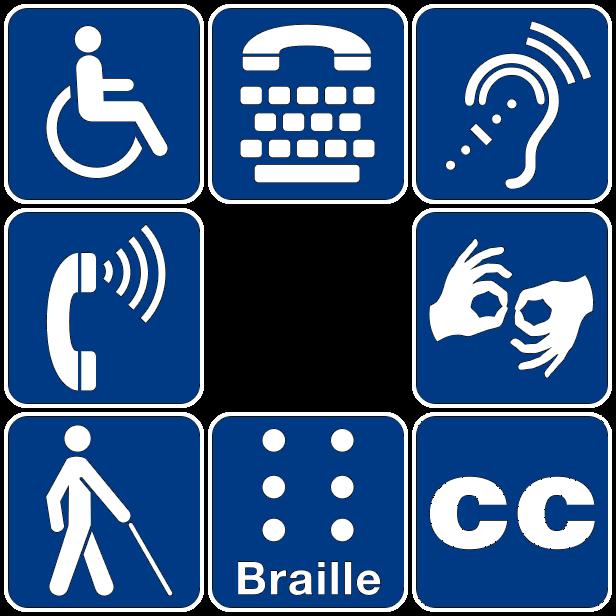
Yesterday (September 1) in Court No.8 of the Supreme Court, before justices Ranjan Gogoi and NV Ramana, a case of civil contempt against the Central Government was argued unsuccessfully by the petitioner in the main case of National Federation of the Blind vs Sanjay Kothari, Secy. Deptt. Of Personnel and Training.
The case attracted the attention of the media for the wrong reasons, as Justice Gogoi, appeared to have been irritated by the presence of a senior journalist near the podium where the Judges sit, chided him for his presence in the well of the court, but on second thoughts, allowed him to use the well for reporting only for that day, as the decision of the Press Accreditation Committee, to bar journalists from coming to the well, might not have reached him.
Justice Gogoi also expressed his unhappiness about the reporting of Judges’ observations during the hearing of the cases, which, according to him, are made only to elicit the responses of the counsel, and not necessarily to reveal the minds of judges on the issue. The reporting of such observations, he felt, might lead to unintended interpretations by the readers. Many outside the court room, however, felt Justice Gogoi’s concerns are debatable.
But for this unfortunate detraction, the case itself deserves to be reported, as it has dismayed differently-abled activists who were behind the petition.
The petitioner, advocate SK Rungta, general secretary of the National Federation of the Blind and himself blind, argued the matter himself for nearly an hour since 10.30 am.
Rungta contended that the Central Government wilfully disobeyed the direction of the Supreme Court contained in Para 54 of the judgment and order in Union of India vs National Federation of the Blind by not making provision for reservation in promotion and also by not identifying the posts against to which persons with disabilities can be appointed and in not making such appointments.
Rungta pointed out that notwithstanding the efflux of a long period of time since the Persons with Disabilities (Equal Opportunity, Protection of Rights and Full Participation) Act, 1995 came into force, and the directions of the Supreme Court dated 8 October 2013, a large number of vacancies remained unfilled, and even those vacancies which have been filled up constitute a negligible percentage of persons with impaired vision.
Rungta argued that Para 51 of the 2013 judgment of the Supreme Court clearly and categorically held that reservations would apply in the matter of promotion.
RS Suri, senior counsel appearing for the intervenor, referred to the a Bombay high court’s judgment in a related case, and more importantly, also brought to attention of Gogoi-Ramana bench that the Supreme Court had dismissed the SLP filed by the UOI against this judgment.
But the Gogoi-Ramana bench observed that an SLP could be dismissed for any number of reasons and therefore, as the Supreme Court’s dismissal order did not state any reasons, one could not infer that the dismissal was on merits.
Having said this, the bench then referred to attorney general Mukul Rohatgi’s point that only Section 47(2) of the Disabilities Act, 1995 dealt with promotions.
At this point, Justice Gogoi observed that the AG was jumping the gun, and pre-mature whereas the court was only examining whether dismissal of the UOI’s SLP against the Bombay high court’s judgment was based on any reasons.
In the September 1 order uploaded on September 2, there is a sentence, without attribution to the AG, which says that on the strength of Section 47(2) it cannot be contended that the Disabilities Act provides for reservations in the matter of promotion. It is not clear whether the bench has concluded so, or is merely attributing it to the AG, having inadvertently omitted to mention it.
The para 10 of the September 1 order makes it clear that the Gogoi-Ramana bench does not agree with Rungta that Para 51 of the 2013 judgment favoured reservations in promotions.
The National Federation of the Blind, in a press release, has brought to light the conflicting legal situation as a result of the Gogoi-Ramana bench’s 1 September order.
Four different benches of the Supreme Court dismissed the Central Government’s petitions, affirming the view that Section 33 of the Disabilities Act includes reservation in promotions, yet the Gogoi-Ramana bench has reached a conclusion, which is contrary to the earlier decisions.
threads most popular
thread most upvoted
comment newest
first oldest
first
timesofindia.indiatimes.com/city/hyderabad/Nalsar-student-misbehaves-with-flight-stewardess-held/articleshow/48752522.cms
www.dnaindia.com/india/report-law-student-arrested-for-allegedly-harassing-indigo-stewardess-2120713
www.thehindu.com/news/cities/Hyderabad/nalsar-student-held-for-misbehaviour/article7602017.ece
www.newindianexpress.com/cities/hyderabad/Man-Held-For-Filming-Flight-Attendant/2015/09/01/article3004008.ece1
Section 33 of disabled act1995 clearly interpretate the word appointment includes promotion and deputation also.Hon'ble supreme court also define appointment as inclusive of promotion also in case of Jagmohan vs UOI ,though some abled interpretate Disables Act 1995 not for benefit of disabled ,but for abled.
They are of the view that reservation in promotion for disabled should not be considered as a right to disabled.,then why dont they themselves take this right from disabled on the sacrifice of being abled ..
if reservation in promotion really brings disabled better than abled ,then all abled prefer to become disabled for sake of this reservation..
It is really an insult to all disabled by behaving like this..
threads most popular
thread most upvoted
comment newest
first oldest
first